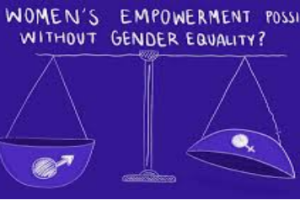
BY TEWODROS KASSA
Ethiopia, having the fastest growing population, has been facing unemployment challenges in the past years. The growing number of youths graduating from more than 40 universities and private colleges every year has compelled the country to implement swift solutions of availing sufficient job opportunities.
There are numerous innovative youths who turn challenges into opportunities and are able to motivate others to follow their footsteps. Technology, tourism, entertainment and art, modern agriculture practices, among others are the leading sectors that the youths are joining today.
Currently, technical and vocational students are also playing an important role to create new job opportunities in the urban areas after receiving the required training and being certified with their field of studies.
Following this, the country has introduced a new ministry office that sought to motivate the youths to become competent job creators and employ themselves and others. The ministry has been providing successive training to the youths and women to promote their entrepreneurship skills and connect them with potential market opportunities at home and abroad.
Recently, the Ministry of Labor and Skills (MoLS) said it is applying modern technology based services on foreign employment processes to ensure citizens’ safety, and create clear employer and employee relations.
MoLS Minister Muferiat Kamil told the Ethiopia Press Agency (EPA) that the technology is applied for overseas employment to respect the rights of workers and ensure their productivity.
“This system helps follow up the citizens’ safety until they reach overseas, cut unnecessary chain of brokers and minimize dangerous travel on the sea or land as well as protect human right violation, illegal human trafficking and exploitation of labor,” she added.
“The overseas job seekers can get registered online by using their cell phone and then they get a training facility without searching the notice board; that helps to have some idea to know the language and culture of the country where they want to go,” the Minister said. “Workers not only engage in home making but also in other areas. Dispatching skillful labor helps minimize the sufferings of citizens abroad,” she said.
Technical and Vocational Sector State Minister with MoLS Teshale Berecha (PhD) on his part said that in a regular way, many citizens are trained to be dispatched to foreign countries for employment. The Ministry has offered training for about 60,000 citizens and sent them overseas legally over the last nine months. It is also working to send about 100,000 citizens.
About 196,000 citizens are registered to take training and to engage in home and foreign employment. Countries of destination that citizens of Ethiopia sent legally include Europe, Middle East, Sweden, Canada and South Korea. “We are providing training on how to develop the skills of youths who would like to go abroad,” the State Minister added.
Moreover, the Ministry of Labor and Skills (MoLS) called on all concerned bodies to realize world standard competitiveness in bridging the wide skills gap across the nation.
The Ministry recently held a panel discussion under the theme: “Third Round National Skills for Competitiveness” aiming at producing adequate skilled human power to address various challenges in different sectors.
During the panel discussion, Minister Muferiat Kamil said that the discussion would bring significant outcomes in modernizing the different sectors, using untapped potential, and the likes by having skilled human power.
As to her, stakeholders should play their parts in a bid to provide each sector with skilled human power thereby helping Ethiopia become competitive at the international level. She added that the discussion will be able to identify the problems especially at education policy and direct to the relevant solution in that regard.
Representing the Ministry of Education (MoE), Matebie Alemayehu on his part said that the Ministry has been carrying out various activities to solve the skilled human power gap by establishing close ties with the Technical and Vocational Education and Training Institute (TVET).
He added that merely 20 to 25% of students join universities each year. It shows that over 20% of students are joining in TVET per year and that is why the Ministry strives to solve the skilled human power gap joining hands with TVET.
If a person brings behavioral change, he/she will fulfill cognitive affective attitude (positive attitude), and psychometric (skills) domains, as to him. At the event WB Women Enterprise Advisor Tsedey Ashebir said: “Developing skills demands government’s commitment and stakeholders’ integration.”
She further stated that inclusiveness, providing quality training; accessibility, making industry and technology linkages, holding similar discussion forums, and drawing important lessons from experienced countries will play a paramount role in bridging the skilled human power gap across Ethiopia. Participants from different sectors discussed issues about the ways that help to address the skills gap through using various mechanisms.
Accordingly, efforts are underway to employ competent youths in home and abroad after providing successive theoretical and practical training. Creating sustainable linkage with industry-university and industry-training centers is also fundamental to cultivate a competitive workforce that helps to realize the country’s industrialization transition. It is also possible to fulfill the country’s growing manufacturing industries; demand for qualified labor force when there is a close collaboration and ties between the industries and training centers.
In related development, following the announcement made by the Ministry of Labor and Skills for local people who aspire to benefit from job opportunities created at home and abroad, many citizens are getting registered through the online labor market information system developed by employees of the Ministry. As to the information from the Ministry, so far over 100,000 citizens have registered online utilizing the newly developed market information system.
The Ethiopian Herald June 4/2023





